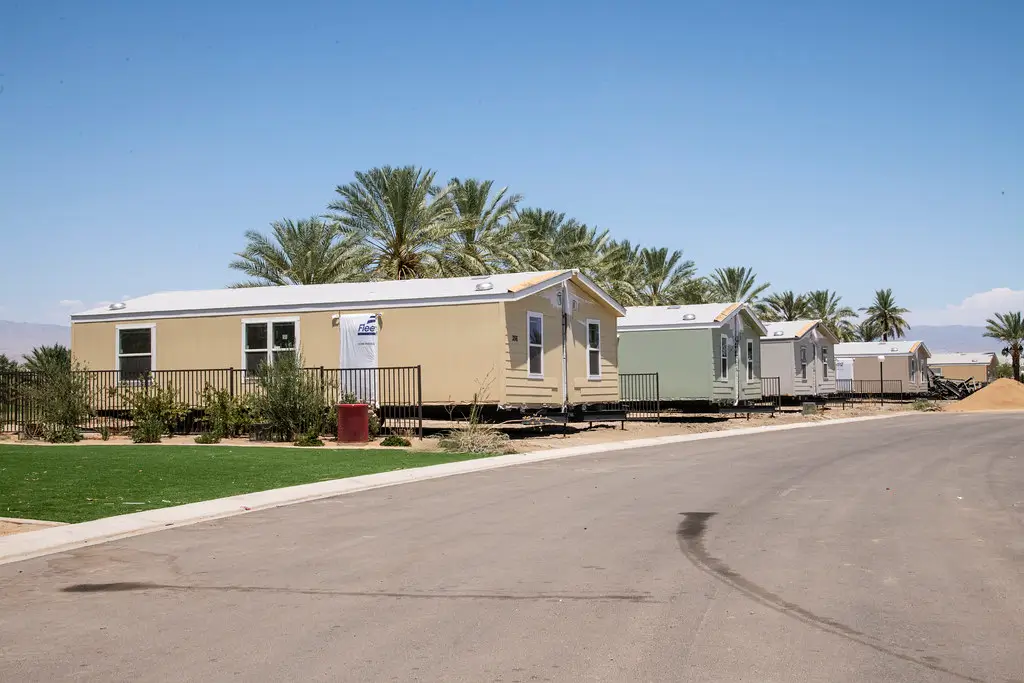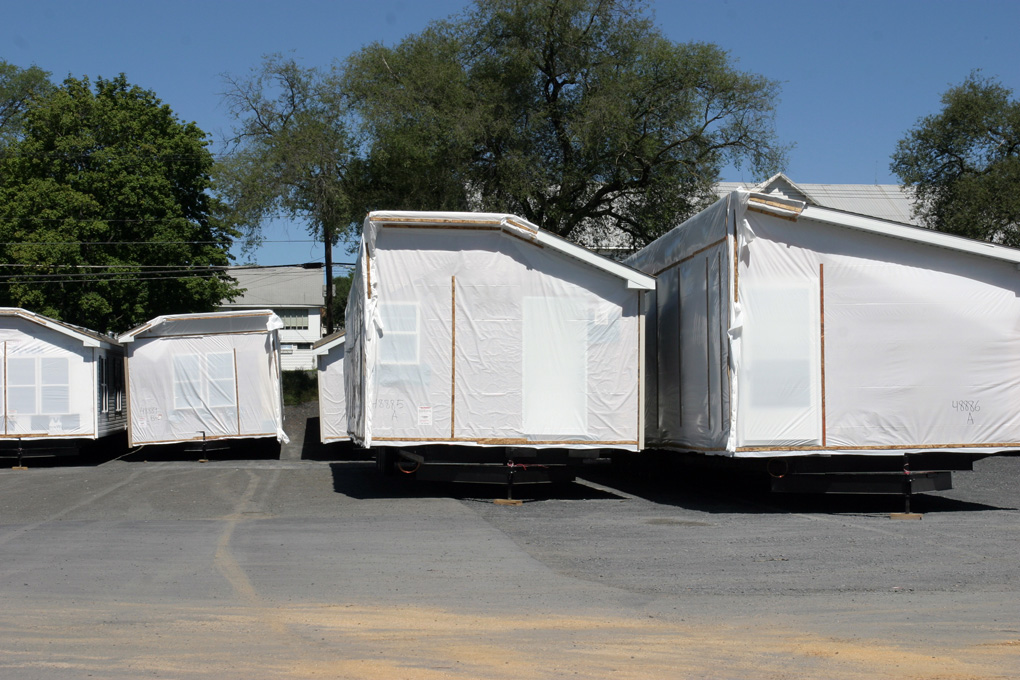Are Mobile Homes a Good Investment in 2024? Pros and Cons
Have you ever driven past a mobile home park and wondered if investing in one of those homes could be a smart financial move?
With the rising cost of traditional housing, many people are turning to mobile homes as an affordable and flexible alternative. But the big question remains: Are mobile homes a good investment?
Mobile homes can be a good investment due to their affordability and potential for rental income. They offer lower entry costs compared to traditional real estate and meet the growing demand for affordable housing. However, factors like depreciation, maintenance, and location should be carefully considered.
In this article, we’ll dive deep into what makes mobile home investments unique, the potential benefits and risks, financial considerations, and real-world examples. By the end, you’ll have a clearer picture of whether mobile homes could be a good addition to your investment portfolio.
What are Mobile Homes?
Mobile homes, also known as manufactured homes, are residential structures built in a factory and then transported to a specific site.
These homes come in various sizes and designs and can be placed on leased land within a mobile home park or on privately owned land.
Types of Mobile Homes

Mobile homes, also known as manufactured homes, come in various types and sizes to fit different needs and preferences. Here are the main types:
Single-Wide Mobile Homes
Single-wide mobile homes are the most basic and affordable type. They are typically narrow and long, measuring about 14 to 18 feet in width and 60 to 90 feet in length. These homes can have one to two bedrooms and one to two bathrooms, making them suitable for singles, couples, or small families. Their compact size means they can be easily transported and placed on smaller lots.
Double-Wide Mobile Homes
Double-wide mobile homes are larger and offer more living space. They consist of two sections joined together to create a wider home, usually around 26 to 32 feet in width and 60 to 90 feet in length. These homes can have two to three bedrooms and two bathrooms, providing a more spacious and comfortable living environment. They are ideal for larger families or those who want more room.
Triple-Wide and Multi-Section Homes
Triple-wide and multi-section homes are even larger, made up of three or more sections. These homes offer the most space and can be customized with various layouts and features. They can include three to five bedrooms and two to three bathrooms, along with additional rooms like a den or office. These homes are suitable for large families or those who desire a lot of space and amenities.
Park Model Homes
Park model homes are smaller, recreational-style mobile homes designed for temporary or seasonal use. They are typically less than 400 square feet and can be found in vacation or retirement communities. These homes are perfect for those looking for a compact and affordable vacation home or a part-time residence.
Each type of mobile home has its own advantages, making it easier to find one that fits your lifestyle and budget.
Investment Basics for Mobile Homes
Investing in mobile homes involves buying the home itself and sometimes leasing the land where it sits. The initial cost is generally lower than that of traditional houses. According to the U.S. Census Bureau, the average price of a new single-wide mobile home was around $61,400 in 2023, compared to the median price of a new single-family home at $416,100.
The mobile home market has been growing steadily, driven by the increasing demand for affordable housing. With over 22 million Americans living in manufactured homes, this sector represents a significant portion of the housing market.
Advantages of Mobile Home Investments
Mobile homes offer several unique advantages, making them an attractive investment option. Here are some of the key benefits:
- Affordability: One of the most significant advantages is the lower initial cost. Mobile homes are typically much cheaper than traditional homes, making them accessible to a broader range of investors.
- High Demand: There is a growing demand for affordable housing options, especially in areas where housing costs are skyrocketing. This demand can translate into steady rental income or a profitable resale value.
- Flexibility: Mobile homes offer flexibility in terms of location and customization. Depending on market conditions and personal preferences, investors can choose to place them in different mobile home parks or private lands.
- Lower Competition: The market for mobile homes is less saturated compared to traditional real estate markets. This lower competition can make it easier to find good deals and secure profitable investments.
- Potential for Passive Income: Renting out mobile homes can provide a steady stream of passive income. With the right property management, investors can enjoy consistent rental earnings with relatively low maintenance efforts.
What Are the Risks of Investing in Mobile Homes?
Like any investment, mobile homes come with their own set of challenges and risks. It’s crucial to understand these potential downsides before diving in.
- Depreciation: Unlike traditional homes, mobile homes tend to depreciate in value over time. This depreciation can impact the overall return on investment, especially if the home is not well-maintained.
- Financing Challenges: Obtaining financing for mobile homes can be more challenging than for traditional homes. Many lenders view mobile homes as riskier investments, which can result in higher interest rates and stricter lending requirements.
- Maintenance and Repairs: Mobile homes can require significant maintenance and repairs, especially older models. Investors should be prepared for ongoing costs related to upkeep and potential renovations.
- Market Volatility: The mobile home market can be volatile, with prices fluctuating based on economic conditions and changes in demand. Investors need to stay informed about market trends to make strategic decisions.
- Location Risks: The location of a mobile home can significantly impact its value and desirability. Mobile home parks can vary widely in quality and amenities, and the surrounding area’s economic health can affect rental income and resale value.
Financial Aspects of Mobile Home Investments
Making informed decisions about mobile home investments requires understanding the financial aspects. Here are some key considerations:
Initial Investment Costs
The initial investment in a mobile home includes the purchase price, transportation costs, and setup fees. For example, the average cost to move and set up a mobile home ranges from $5,000 to $8,000, depending on the distance and complexity of the move.
Operating Expenses
Operating expenses for mobile homes include maintenance, utilities, insurance, and lot rent if the home is located in a mobile home park. Lot rent can vary widely but typically ranges from $200 to $700 per month.
Return on Investment (ROI)
Calculating the potential ROI is essential for evaluating the profitability of a mobile home investment. Factors to consider include purchase price, rental income, operating expenses, and potential appreciation or depreciation.
Tax Implications
Mobile homes come with specific tax implications that can affect the overall investment. Investors may benefit from property tax deductions, but it’s essential to understand local tax laws and regulations.
How Much Do Mobile Homes Cost?
Mobile Home Cost Breakdown
| Cost Component | Average Cost | Notes |
| Single-Wide Purchase | $61,400 | New home, 2023 average |
| Double-Wide Purchase | $115,900 | New home, 2023 average |
| Square Footage | 600 – 1,300 sq. ft. | Typically ranges from single-wide to double-wide |
| Bedrooms | 1 – 3 bedrooms | Varies by model and layout |
| Bathrooms | 1 – 2 bathrooms | Varies by model and layout |
| Transportation | $1,000 – $5,000 | Depends on distance and complexity |
| Setup Fees | $1,500 – $10,000 | Includes utility installation and foundation setup |
| Lot Rent | $200 – $700 per month | Varies by location and park amenities |
| Maintenance & Repairs | Varies | Higher for older homes |
| Insurance Premiums | $300 – $1,000 annually | Depends on coverage and location |
When considering the investment potential of mobile homes, understanding the costs involved is crucial. Mobile homes, also known as manufactured homes, offer a range of prices depending on size, features, and location.
According to the U.S. Census Bureau, the average cost of a new single-wide mobile home was approximately $61,400 in 2023. For double-wide models, the average price rose to about $115,900. These prices can vary significantly based on factors such as location, the quality of materials used, and additional customizations.
The cost breakdown of a mobile home includes more than just the purchase price. Transportation and setup fees are essential to consider and can add significantly to the total investment.
Transporting a mobile home can cost between $1,000 and $5,000, depending on the distance and complexity of the move. Setup fees, which include installing utilities and securing the home on a foundation, typically range from $1,500 to $10,000. Therefore, it’s vital to budget for these additional costs to get an accurate estimate of the total investment.
In addition to initial costs, ongoing expenses such as maintenance, lot rent, and utilities must be factored into the investment. Lot rent, for example, can vary widely but typically ranges from $200 to $700 per month, depending on the location and amenities of the mobile home park. Maintenance and repair costs can also add up, especially for older homes, which may require more frequent upkeep. Insurance is another recurring cost, with premiums averaging around $300 to $1,000 annually, depending on the coverage and location.
Given these figures, it’s clear that while mobile homes offer an affordable entry point into the real estate market, investors must consider the full spectrum of costs involved. By doing thorough research and budgeting for all potential expenses, investors can better assess the viability and profitability of mobile home investments.
How Long Do Mobile Homes Last?

The lifespan of a mobile home, also known as a manufactured home, can vary significantly based on factors such as build quality, maintenance, and environmental conditions.
Generally, a well-constructed and properly maintained mobile home can last 30 to 55 years or even longer. The quality of materials used in construction, as well as adherence to building standards, play a crucial role in determining the durability of the home.
Modern mobile homes built after the implementation of the HUD Code in 1976 are constructed to stringent standards, which include regulations for construction, energy efficiency, and safety. These improvements have significantly enhanced the longevity of newer mobile homes compared to those built before the HUD Code.
Regular maintenance is essential to extend the lifespan of a mobile home. This includes routine inspections, timely repairs, and preventive measures to protect the home from environmental elements such as moisture, wind, and pests.
For instance, ensuring the roof remains in good condition, addressing leaks promptly, and maintaining the home’s foundation can prevent structural damage and deterioration.
Additionally, upgrading or replacing outdated components such as plumbing, electrical systems, and insulation can further enhance the home’s longevity. With diligent care and attention, mobile homeowners can maximize the lifespan of their investment, ensuring it remains a viable and comfortable living space for many years.
Good Investing Alternatives to a Mobile Home
When considering investment options beyond mobile homes, it’s essential to explore various avenues that can offer strong returns and align with your financial goals. Here are some compelling alternatives:
Traditional Real Estate
- Residential Properties: Investing in traditional residential real estate, such as single-family homes, condominiums, or multi-family units, is a time-tested approach. These properties can generate rental income and appreciate over time. According to the Federal Reserve, the average annual return on real estate investments has been about 10% over the long term.
- Commercial Properties: Commercial real estate includes office buildings, retail spaces, and industrial properties. These investments often yield higher returns compared to residential properties due to longer lease terms and higher rental rates. However, they also come with higher initial costs and more complex management requirements.
- Real Estate Investment Trusts (REITs): REITs are companies that own, operate, or finance income-generating real estate across various sectors, including residential, commercial, and industrial properties. Investing in REITs allows individuals to gain exposure to real estate without the need to manage physical properties. REITs are traded on major stock exchanges, offering liquidity and the potential for steady dividend income. Historically, REITs have provided an average annual return of about 8-12%.
Stocks and Bonds
- Stocks: Investing in the stock market offers the potential for high returns through capital appreciation and dividends. Diversifying your portfolio across different industries and sectors can help mitigate risks. Over the past century, the S&P 500 has yielded an average annual return of approximately 10%.
- Bonds: Bonds are a more conservative investment, providing regular interest payments and returning the principal upon maturity. Government bonds, corporate bonds, and municipal bonds offer varying degrees of risk and return. Historically, bonds have offered lower returns than stocks but are considered safer, making them a good option for risk-averse investors.
Mutual Funds and ETFs
Mutual Funds: Mutual funds pool money from multiple investors to purchase a diversified portfolio of stocks, bonds, or other securities. They are managed by professional fund managers, which can be beneficial for those who prefer a hands-off approach. Mutual funds offer the potential for growth and income, with the level of risk varying based on the fund’s investment strategy.
ETFs (Exchange-Traded Funds): ETFs are similar to mutual funds but trade on stock exchanges like individual stocks. They provide diversification, lower expense ratios, and greater flexibility in buying and selling shares. ETFs can focus on specific sectors, commodities, or indices, allowing investors to tailor their portfolios to their investment preferences.
Peer-to-Peer Lending
Peer-to-peer (P2P) lending platforms connect borrowers with individual lenders, offering an alternative to traditional banking. Investors can earn attractive returns by lending money directly to borrowers, with interest rates typically higher than those offered by savings accounts or CDs. However, P2P lending comes with higher risk, as borrowers may default on their loans.
Cryptocurrency
Cryptocurrency investments have gained popularity due to their potential for high returns. Digital currencies like Bitcoin, Ethereum, and others offer opportunities for capital appreciation. However, the cryptocurrency market is highly volatile and speculative, making it suitable for investors with a high-risk tolerance and a long-term perspective.
Mobile Homes vs. Traditional Real Estate
To determine if mobile homes are a good investment, it’s helpful to compare them to traditional real estate options.
Cost Comparison
Mobile homes are generally more affordable than traditional homes. The lower purchase price can make them an attractive option for new investors or those with limited capital.
Risk Analysis
While mobile homes come with specific risks, such as depreciation and maintenance costs, traditional real estate also has its challenges, including market volatility and higher initial investment costs.
Profit Potential
The profit potential for mobile homes can be significant, especially in high-demand areas. However, traditional real estate often offers greater long-term appreciation. The choice between the two depends on your investment goals, risk tolerance, and financial situation.
Summing It All Up
So, are mobile homes a good investment? The answer depends on various factors, including your financial goals, risk tolerance, and ability to manage the investment. Mobile homes can offer affordability, high demand, and potential for passive income, but they also come with risks such as depreciation and maintenance challenges.
By carefully considering the pros and cons, conducting thorough research, and learning from real-world examples, you can make an informed decision about whether mobile home investments are right for you.

Teresa Scott is a finance writer passionate about simplifying complex financial concepts. With a background in investment banking, she provides insightful advice on personal finance, investing, and economic trends.
